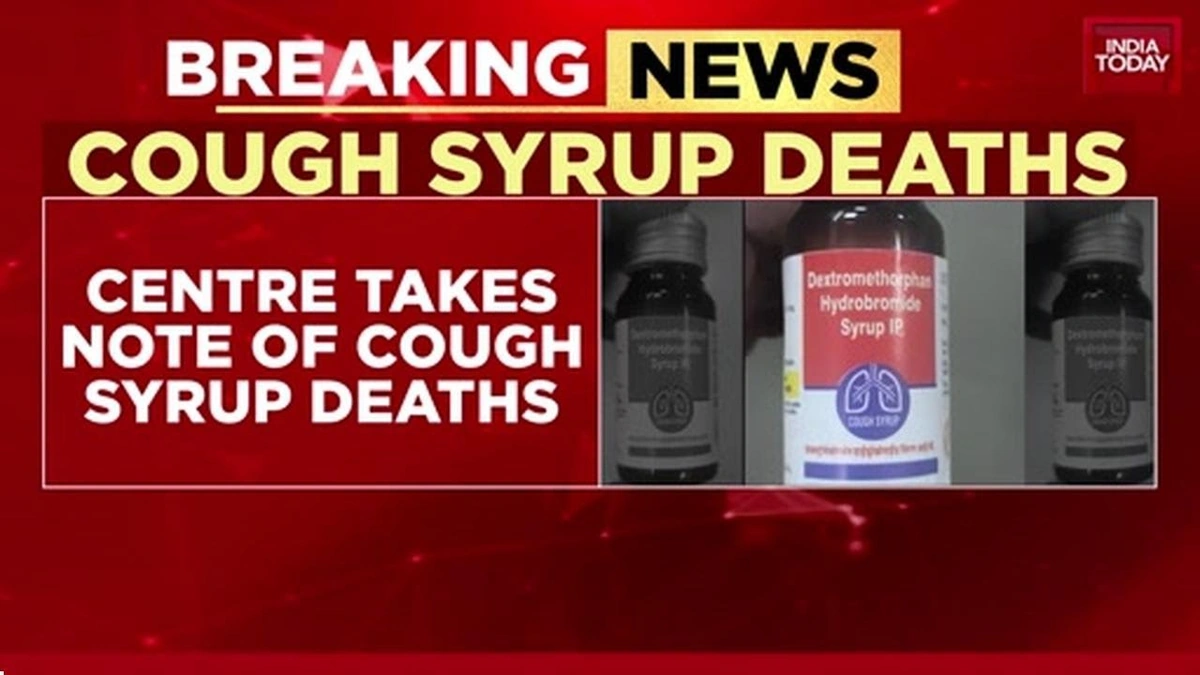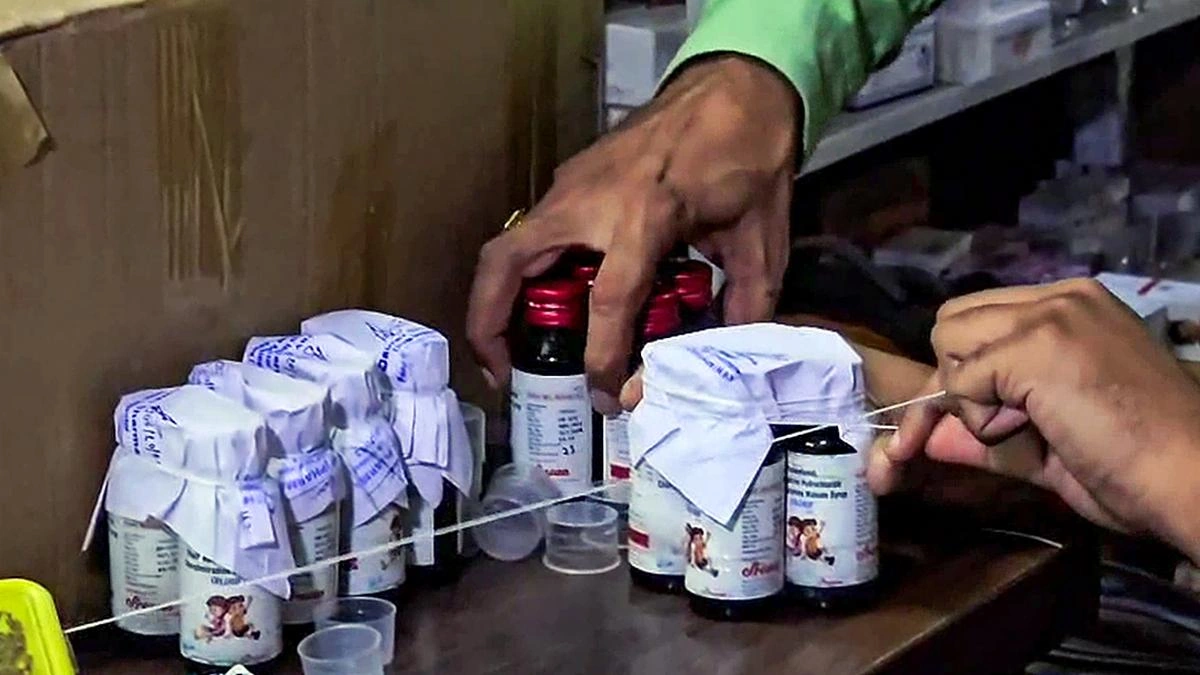MP Cough Syrup Deaths | SIT Investigation Launched; IMA Threatens Strike After Doctor’s Arrest
The news is flashing: cough syrup deaths in Madhya Pradesh. An SIT investigation. Doctors threatening strikes. But let’s be honest, headlines barely scratch the surface. What’s really going on here? Why are these incidents still happening? And what does it all mean for the average person buying medicine in India?
I’m not just going to regurgitate the news. I want to dig into the ‘why’ – the underlying problems, the potential solutions, and the larger implications of this unfolding tragedy. Because, frankly, it’s more than just a news story; it’s a matter of public health and trust.
The Murky Waters of Drug Regulation

So, here’s the thing: India’s pharmaceutical industry is a powerhouse, churning out medicines for the world. But with that volume comes a challenge – ensuring quality control. The regulatory landscape is, shall we say, complex. Different states have different rules, and enforcement can be patchy. Think of it like a game of whack-a-mole; you solve one problem, and another pops up somewhere else.
The Drugs and Cosmetics Act, 1940 is the primary legislation governing drug manufacturing and sale. But here’s the rub: its implementation varies wildly across states. Some states have robust testing facilities and strict enforcement, while others… well, let’s just say they could do better. This inconsistency creates loopholes that unscrupulous manufacturers can exploit. The lack of uniform standards across the country for pharmaceutical quality control means that some batches of drugs may not be tested as rigorously as others. And when it comes to cough syrups, especially those aimed at children, even a tiny error in formulation can have devastating consequences.
And it is essential to note that India’s drug regulatory system is decentralized. Different states have their own licensing authorities. This decentralization, while intended to facilitate local production, can also lead to inconsistencies in quality control and enforcement across the country.
The Doctor’s Dilemma and the IMA’s Response
Now, let’s talk about the doctor’s arrest. The Indian Medical Association (IMA) is up in arms, threatening a strike. Their argument? Doctors shouldn’t be held solely responsible for adverse drug reactions. They prescribe based on available information and established medical practices. If a drug is faulty, the blame, they say, lies with the manufacturer and the regulatory authorities.
It’s a valid point. Doctors are on the front lines, dealing with patients every day. They rely on the drugs they prescribe to be safe and effective. If a doctor prescribes a medication that subsequently proves harmful due to manufacturing defects, holding them solely accountable seems unfair. There’s a need to differentiate between negligence on the part of the doctor and systemic failures in the drug manufacturing and regulatory processes. The IMA strike threat highlights the tension between individual accountability and systemic responsibility within the healthcare system.
But, and this is a big ‘but,’ doctors also have a responsibility to be vigilant. To report adverse drug reactions. To stay updated on the latest safety information. It’s a delicate balance. No one wants to see doctors unfairly targeted, but accountability is crucial at every level.
What fascinates me is how quickly we jump to blame. The entire system needs scrutiny, from manufacturing practices to prescription protocols. It is the role of SIT investigation to determine the root cause, and that’s what we should demand.
The Human Cost and the Search for Solutions
Behind every headline, there are real people. Families who have lost loved ones. Children whose lives have been tragically cut short. It’s easy to get lost in the technical details of drug regulation and legal battles, but we can never forget the human cost of these failures. The grief is unmeasurable.
What can be done? Well, strengthening drug regulation is paramount. We need uniform standards across the country. More robust testing facilities. Stricter enforcement. But that’s not all. We also need to empower consumers. To educate them about the risks of counterfeit drugs. To provide them with easy access to information about drug safety. It is a significant point to ponder, that public health awareness has to be raised.
A common mistake I see people make is assuming that all medicines sold in India are of the same quality. That’s simply not true. There’s a wide range, and it’s crucial to be discerning. Ask your pharmacist questions. Check the packaging for authenticity. And if something seems off, don’t hesitate to report it.
The Path Forward | Transparency and Accountability
Ultimately, the solution lies in transparency and accountability. We need to shine a light on the dark corners of the pharmaceutical industry. To hold manufacturers accountable for their actions. To ensure that regulatory authorities are doing their job effectively. This includes ensuring all drug manufacturers accountability , as transparency alone is not enough. There needs to be a system in place for penalizing negligence.
And, we need a culture of openness. Where doctors feel safe reporting adverse drug reactions without fear of reprisal. Where consumers feel empowered to ask questions and demand answers. Where the government is committed to protecting public health above all else.
According to recent reports, the SIT investigation is expected to focus on several key areas, including the manufacturing processes of the cough syrup, the role of regulatory bodies in approving the drug, and the supply chain that led to its distribution. It’s crucial to monitor these developments closely, as they could have significant implications for the future of drug regulation in India.
The investigation is crucial to understand how these substandard medicines made their way into the market. The investigation needs to be done thoroughly.
Frequently Asked Questions (FAQ)
FAQ
What exactly is an SIT investigation?
SIT stands for Special Investigation Team. It’s a team formed to investigate a specific incident or crime, usually when it’s complex or involves multiple parties.
What are the implications of the IMA strike threat?
If the IMA goes on strike, it could disrupt healthcare services across the country. It’s a way for doctors to protest what they see as unfair treatment.
How can I be sure the medicines I’m buying are safe?
Always buy medicines from reputable pharmacies. Check the packaging for authenticity. And don’t hesitate to ask your pharmacist questions.
What should I do if I experience an adverse reaction to a medicine?
Consult a doctor immediately. And report the reaction to the appropriate regulatory authorities.
Where can I report a suspected counterfeit drug?
You can report it to the Central Drugs Standard Control Organization (CDSCO) or your local state drug control authority.
What is the government doing to prevent future incidents of cough syrup deaths?
The government has announced measures to strengthen drug regulation and improve quality control. But the proof will be in the implementation.
So, where does this leave us? With more questions than answers, perhaps. But also with a renewed sense of urgency. The cough syrup tragedy is a wake-up call. It’s a reminder that we can never take public health for granted. That vigilance, transparency, and accountability are essential. And that, ultimately, the health and well-being of every citizen depend on it. This entire situation highlights the need for better cough syrup regulation .
Because, let’s face it, the next headline could be about you, or someone you love. And that’s a risk we simply can’t afford to take. It is imperative that the government implements stricter guidelines.













